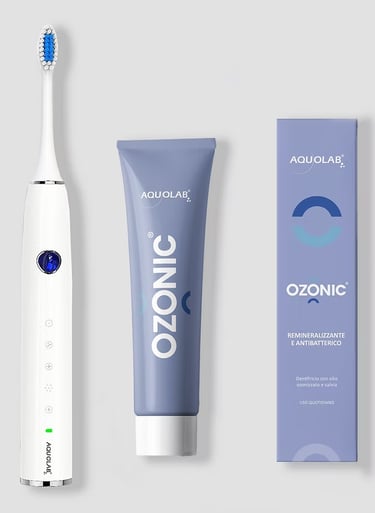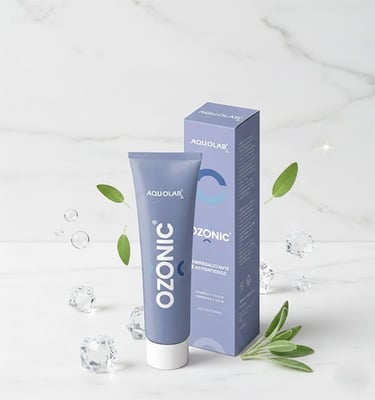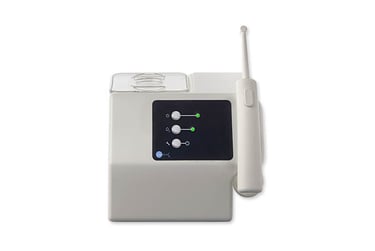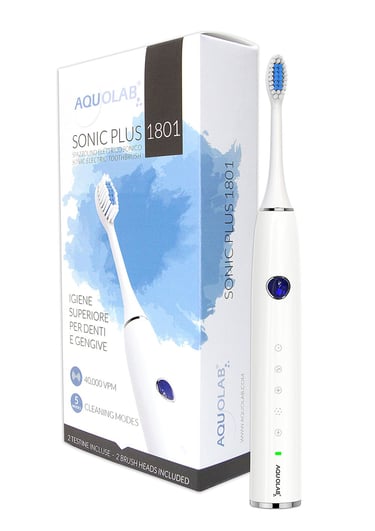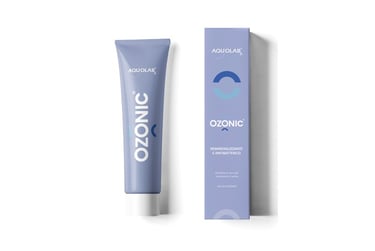hygiene-precision: distributor of Aquolab products
The causes of tooth demineralization
Causes of tooth demineralization : it’s a bit like seeing an egg shell dissolve in vinegar: the enamel of your teeth loses its essential minerals (mainly calcium and phosphorus) and becomes more fragile.
hygiene-precision.com
1/28/20268 min read
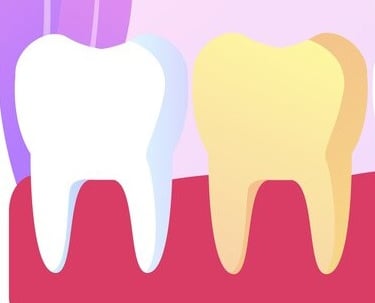

The Causes of Tooth Demineralization: Understanding, Preventing, and Treating It
Tooth demineralization is a common yet insidious phenomenon, often compared to an eggshell dissolving in vinegar. It refers to the gradual loss of essential minerals from tooth enamel—mainly calcium and phosphorus—making teeth more fragile, sensitive, and vulnerable to external aggressions.
The Causes of Tooth Demineralization
Several factors can trigger this process. Here are the 7 main causes of tooth demineralization:
1. An Overly Acidic Diet
Acidic foods and beverages are the number one enemies of enamel:
Carbonated drinks: rich in phosphoric acid, they directly attack tooth enamel.
Natural fruit juices: although healthy, they contain acids (such as citric acid) that gradually erode teeth.
Citrus fruits, tomatoes, vinegar, sour candies: when consumed frequently and over long periods, these foods weaken enamel.
2. Dental Plaque and Bacteria
Dental plaque is a thin layer of bacteria that adheres to teeth. These bacteria feed on sugars and produce acids that dissolve enamel minerals.
Poor oral hygiene encourages their proliferation.
Refined sugars (sodas, candies, pastries) fuel these bacteria, increasing the risk of demineralization.
3. Gastroesophageal Reflux Disease (GERD)
Acid reflux from the stomach rises into the esophagus and can reach the mouth. These powerful acids attack teeth, particularly the inner (palatal) surfaces of the upper incisors.
4. Bulimia and Eating Disorders
Frequent vomiting exposes teeth to gastric acids. Patients suffering from bulimia are therefore at particularly high risk of severe tooth demineralization.
5. Bruxism (Teeth Grinding)
This often unconscious phenomenon, especially during sleep, causes mechanical wear of the enamel. Once weakened, enamel becomes more susceptible to acid attacks.
6. Inadequate Oral Hygiene
Aggressive brushing or the use of hard-bristle toothbrushes can wear down enamel.
Lack of fluoride or ozone: these elements are essential for remineralization. Their absence weakens enamel over the long term.
7. Certain Medications
Antacids, antidepressants, or treatments that reduce saliva production can disrupt oral pH balance and promote demineralization.
White Spots on Teeth: Consequences and Treatments of Tooth Demineralization
Tooth demineralization should not be taken lightly. Here are the main consequences if it is not treated promptly:
1. Development of Cavities
Weakened enamel no longer properly protects dentin. Bacteria can then penetrate it, leading to deep cavities.
2. Tooth Sensitivity
As enamel becomes thinner, thermal and chemical stimuli (hot, cold, sweet, acidic) reach the nerves more easily, causing pain.
3. Loss of Tooth Structure
At an advanced stage, the tooth may lose substance, leading to crumbling or fractures and requiring complex dental treatments (crowns, reconstructions).
How to Avoid Tooth Demineralization? Effective Prevention and Solutions
1. Adopt a Rigorous Oral Hygiene Routine
Brush twice a day
with a soft toothbrush
and a fluoride or ozone-based toothpaste.
Use an ozone dental water flosser,
known for its disinfecting
and remineralizing action.
Complement with dental floss or interdental brushes while being very gentle with your gums. Prefer a low-pressure, ozone-based dental water flosser for gentle care and high-quality disinfection.
2. Improve Your Diet
Limit the consumption of sodas, fruit juices, acidic and sugary foods.
Wait 30 minutes after an acidic meal before brushing your teeth.
Consume foods rich in calcium (milk, yogurt, cheese) and phosphorus (eggs, fish, nuts).
3. Use Remineralizing Treatments
Choose toothpastes enriched with fluoride, hydroxyapatite, or ozone.
In dental clinics, professional treatments such as fluoride varnishes or remineralizing baths may be offered.
4. Address Medical Causes
In cases of GERD, consult a gastroenterologist for appropriate management.
In cases of eating disorders, psychological support is essential.
Conclusion: Prevention Is Better Than Cure
Understanding the causes of tooth demineralization is the first step toward protecting your smile. By combining prevention, good oral hygiene, a balanced diet, and appropriate care, it is entirely possible to slow down this process and preserve the long-term health of your teeth.
Consider incorporating an ozone dental water flosser and a remineralizing toothpaste into your daily routine, and remember that regular dental checkups help detect the early signs of demineralization before they worsen.
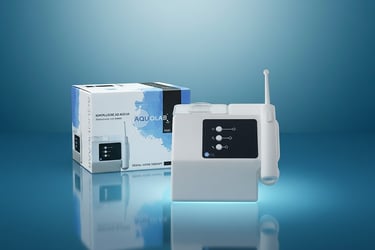

FAQ – Tooth Demineralization
🔹 General Information on Tooth Demineralization
What are the causes of tooth demineralization in adults?
Tooth demineralization in adults is mainly caused by acidity (acidic diet, gastric reflux, sugary drinks), poor oral hygiene, smoking, insufficient protective saliva (dry mouth), overly aggressive brushing, and the natural wear of enamel associated with aging. Acidogenic bacteria also play a key role by lowering the oral pH.
How can the early signs of tooth demineralization be recognized?
Early signs are often subtle: white spots on enamel, opaque areas, sensitivity to cold or sugar, loss of enamel shine, and early weakening of the tooth surface. If left untreated, these signs may progress into cavities.
What is the difference between tooth demineralization and early-stage cavities?
Demineralization refers to mineral loss from enamel without cavity formation, whereas an early cavity marks the stage where tooth structure begins to break down. Good news: demineralization can still be remineralized, unlike cavitated decay, which requires dental treatment.
What are the long-term consequences of enamel demineralization?
Without treatment, it can lead to persistent hypersensitivity, cavity formation, premature enamel wear, and aesthetic alterations (white spots or yellowing). In severe cases, dentin may become weakened.
What is the tooth demineralization and remineralization process explained simply?
Demineralization occurs when oral pH drops below 5.5, causing minerals (calcium, phosphate) to leave the enamel. Conversely, when pH rises and fluoride, saliva, and mineral ions are present, enamel remineralizes. This cycle is constant but can be disrupted by excessive acidity.
Why does tooth enamel demineralize with age?
With age, saliva production decreases, cumulative acid exposure increases, and enamel becomes thinner. Dietary habits and oxidative stress further amplify mineral loss.
🔹 Symptoms of Tooth Demineralization
What are the symptoms of tooth demineralization in children?
In children, white spots are the primary sign. They often appear near the gums or around orthodontic brackets. Sensitivity and increased fragility may also occur.
Can tooth sensitivity be linked to enamel demineralization?
Yes. When enamel loses minerals, it becomes more porous. Dentin is less insulated, increasing sensitivity to cold, heat, and sweet or acidic foods.
Are white spots on teeth a sign of demineralization?
Yes, opaque white spots are one of the most typical indicators. They reflect localized mineral loss due to acid exposure or insufficient oral hygiene.
How can I tell if my teeth are demineralizing?
Signs include white spots, new sensitivity, roughness to the touch, small matte areas, and occasional pain. A dentist can confirm the diagnosis through visual examination and specific tests.
🔹 Importance of Nutrition / Diet in Tooth Demineralization
Which foods are responsible for enamel demineralization?
Acidic foods (citrus fruits, vinegar, sodas, tomatoes), energy drinks, candies, sugar, and sticky starches (chips, white bread) promote pH reduction and enamel demineralization.
What diet should be adopted to prevent tooth demineralization?
A diet rich in minerals (calcium, magnesium, phosphorus), fiber, dairy products, green vegetables, and proteins is ideal. Acidic foods and sugar should be limited.
What is the role of calcium in preventing tooth demineralization?
Calcium is a fundamental component of enamel. Adequate intake helps maintain oral mineral balance and supports remineralization via saliva.
What is the impact of acidic beverages on tooth demineralization?
Acidic drinks (sodas, juices, iced tea) significantly lower oral pH, triggering enamel mineral dissolution. The higher the consumption frequency, the more harmful the effect.
Can a low-sugar diet limit tooth demineralization?
Yes, because sugar feeds acid-producing bacteria. Less sugar means less aggressive dental plaque.
🔹 Prevention & Oral Hygiene to Avoid Tooth Demineralization
How can tooth demineralization be prevented naturally?
Limiting acids, reducing sugar, drinking plenty of water, avoiding snacking, chewing firm foods (to stimulate saliva), and using protective toothpaste are essential measures.
Which oral hygiene products help prevent tooth demineralization?
Toothpastes with ozone and hydroxyapatite, fluoride toothpastes, ozonated or fluoridated mouthwashes, remineralizing gels, and professionally applied varnishes are the most effective.
What brushing routine is recommended to prevent mineral loss?
Brush 2–3 times daily with a soft, sonic toothbrush for optimal motion quality, use a gentle technique, avoid brushing immediately after acidic meals, and use a remineralizing toothpaste containing hydroxyapatite.
Which toothpaste for demineralized teeth do dentists recommend?
Toothpastes containing biomimetic hydroxyapatite or fluoride (1450 ppm or more depending on recommendations) are most commonly advised.
What brushing mistakes promote tooth demineralization?
Brushing too hard, using a hard-bristled brush, brushing immediately after acidic foods, or using abrasive toothpastes.
🔹 Treatments for Tooth Demineralization
What professional treatments are available for enamel demineralization?
Hydroxyapatite treatments, fluoride varnishes, fluoride gels, resin infiltration for white spots, and guided remineralization.
Is ozone effective for tooth remineralization?
Yes. Ozone promotes remineralization by eliminating bacteria responsible for dental lesions, making teeth more resistant to acid attacks.
Can fluoride varnishes stop tooth demineralization?
Yes. Professionally applied fluoride varnishes create a protective barrier and accelerate remineralization.
Which remineralizing gels are recommended by dentists?
Gels containing fluoride, nano-structured hydroxyapatite, or CPP-ACP (casein phosphopeptide) are most recommended.
Is natural tooth remineralization possible?
Yes, if the area is not cavitated. Healthy saliva, ozone treatments, fluoride, hydroxyapatite, and good oral hygiene allow spontaneous remineralization.
Is there a home treatment to strengthen enamel in case of demineralization?
Using hydroxyapatite remineralizing toothpaste, an ozone dental irrigator, reducing acids, drinking plenty of water, using fluoride mouthwash, and maintaining strict oral hygiene can help. However, home care does not replace professional follow-up.
🔹 Children & Orthodontics: Risks of Tooth Demineralization
What are the causes and solutions for tooth demineralization in children?
Causes include sugary diets, inadequate brushing, orthodontic appliances, and immature saliva. Solutions: age-appropriate fluoride, strict hygiene, and regular dental monitoring.
How can demineralization around braces / orthodontic brackets be prevented?
Brushing after every meal, using an ozone interdental irrigator, ozonated or fluoridated mouthwash, frequent check-ups, and avoiding sticky or sugary foods.
How can white spots be remineralized after orthodontic treatment?
Fluoride gels, hydroxyapatite, micro-infiltration, fluoride varnishes, or in-office aesthetic treatments.
Why is tooth demineralization observed in adolescents with braces?
Brackets retain plaque and increase local acidity, promoting mineral loss if oral hygiene is not optimal.
🔹 Expert / Scientific Content on Tooth Demineralization
What is the biochemical mechanism of enamel demineralization?
When oral pH drops below the critical threshold (5.5), hydrogen ions dissolve hydroxyapatite, releasing calcium and phosphate. The reverse process occurs when pH returns to neutral.
What is the role of salivary pH in tooth demineralization?
Saliva maintains pH, supplies minerals, and neutralizes acids. Low pH promotes demineralization; high pH promotes remineralization.
What are the risk factors for tooth demineralization according to recent studies?
Salivary deficiency, frequent acid consumption, poor hygiene, chronic diseases, diabetes, gastroesophageal reflux, and certain medications.
What is the link between tooth demineralization and dry mouth?
Saliva protects enamel. In dry mouth, acids are not neutralized, pH remains low, and demineralization accelerates.
🔹 Natural Solutions for Tooth Demineralization
Can essential oils limit tooth demineralization?
They can reduce bacteria (tea tree, peppermint) but do not remineralize enamel. They should be used only as a complementary approach.
Is natural hydroxyapatite effective for tooth remineralization?
Yes. It is one of the most promising ingredients: it adheres to enamel, fills micro-lesions, and protects against acid attacks.
Which natural solutions help strengthen tooth enamel?
Hydroxyapatite, ozone treatments, a mineral-rich diet, xylitol, mineral water, sugar-free chewing gum, and saliva stimulation.
Can a calcium and vitamin D supplement prevent tooth demineralization?
Yes, if dietary intake is insufficient. Vitamin D improves calcium absorption, but it does not replace oral hygiene.
🔹 Which Products to Buy Against Tooth Demineralization
What is the best toothpaste for demineralized teeth?
Hydroxyapatite or fluoride toothpastes are recommended. For sensitive gums, choose pain-relief formulas.
Which remineralizing gel should be chosen for weakened enamel?
Fluoride or hydroxyapatite gels are most effective and are used in treatment courses lasting several weeks.
Which mouthwash should be chosen against tooth demineralization?
An alcohol-free ozonated or fluoridated mouthwash is ideal for strengthening enamel and reducing sensitivity.
Which dental remineralization kits are most effective?
Hydroxyapatite-based or fluoride varnish kits are the most reliable. Online options should be chosen with caution.
Are anti-acid dental protectors useful for sensitive teeth?
Yes, especially for people with bruxism, GERD, or frequent acid exposure. They help limit erosion and sensitivity.
What treatments are available for tooth demineralization?
Treatments include:
Use of remineralizing toothpastes (ozone, hydroxyapatite, fluoride),
Professional dental care (fluoride varnishes, remineralizing baths),
Treatment of underlying causes (reflux, eating disorders).
Can ozone help remineralize teeth?
Yes. The use of an ozone dental irrigator and ozone- and hydroxyapatite-based toothpastes helps disinfect the mouth, reduce bacteria, and promote natural enamel remineralization.
Continue reading...
© 2024. All rights reserved.





